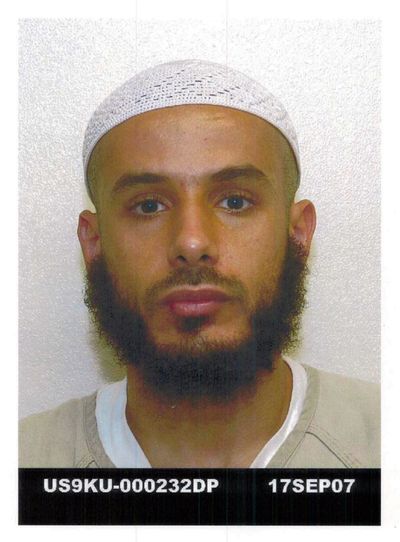Guantanamo inmate released to Kuwait
Panel: Odah not threat to U.S.

WASHINGTON – A long-held al-Qaida suspect at Guantanamo Bay was sent home to Kuwait on Wednesday after U.S. officials concluded he does not pose a threat to the United States.
Fawzi Odah, 37, was never charged or put on trial during his 13 years in the U.S. military prison set up in Cuba for terrorism suspects after the Sept. 11, 2001, terrorist attacks.
His departure leaves 148 detainees in a facility that President Barack Obama has repeatedly vowed to close. Of those, 79 have been recommended for transfer.
Odah is the first detainee transferred from Guantanamo Bay since May, when the administration released five high-level Afghan Taliban detainees in exchange for Sgt. Bowe Bergdahl, a U.S. soldier who was held by the Taliban for five years.
This year, Odah’s American lawyers filed a lawsuit challenging his detention as a violation of international law because prisoners of war should be released once a war ends. U.S. combat troops are withdrawing from Afghanistan, although the conflict there continues.
But it took the Obama administration’s new periodic review board system to rule that Odah, who was captured in the early days of the U.S. war in Afghanistan, was not a potential threat.
The parole-like boards were set up to determine whether more prisoners could be sent home from the controversial prison, and he is the first person to be repatriated under that system.
In a statement, the Pentagon said board members had determined further detention of Odah “does not remain necessary to protect against a continuing threat to the security of the United States.”
In a separate report, the board cited Odah’s “low level of training and lack of a leadership position in al-Qaida” as well as his family support and Kuwaiti security measures.
Officials said Kuwait’s government has agreed that Odah will remain in custody as part of a yearlong rehabilitation program.
Odah was captured shortly after the U.S.-led invasion of Afghanistan in late 2001. His family said he was serving as a refugee relief worker when he was taken by bounty hunters and turned over to U.S. forces.
U.S. intelligence officials believed Odah was an associate of al-Qaida founder Osama bin Laden, based largely on information from other captives.